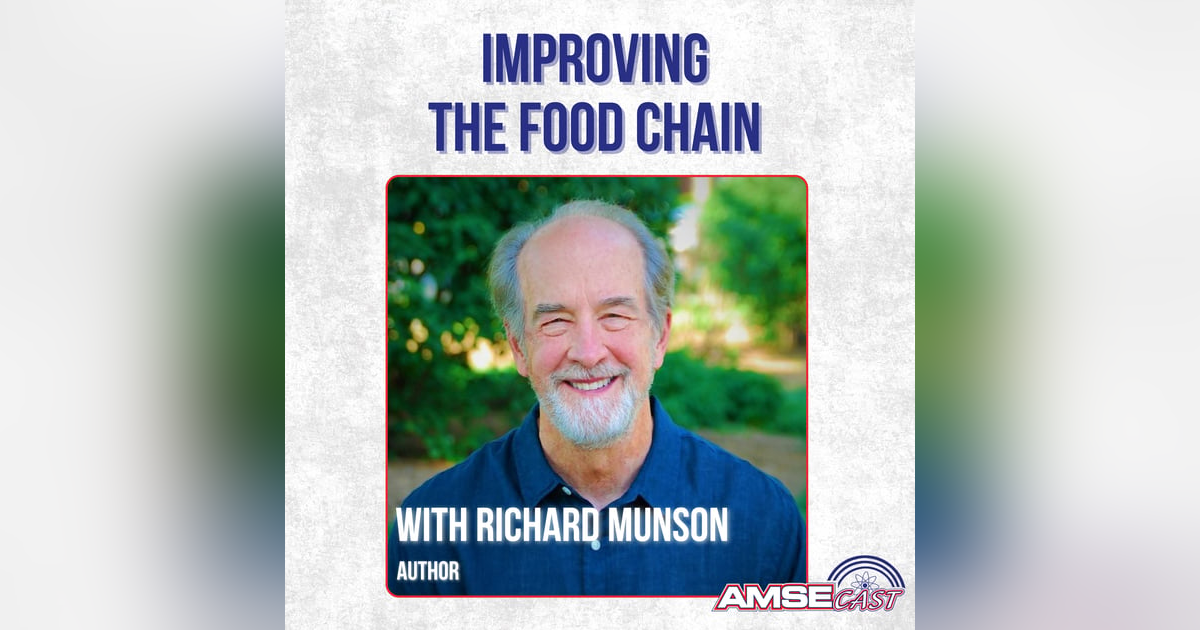July 31, 2024
Improving the Food Chain with Richard Munson

In his latest book, Tech to Table: 25 Innovators Reimagining Food, Richard Munson explores how new technologies are revolutionizing agriculture—a traditionally slow-to-modernize industry. In this episode, we explore specific innovations like...
In his latest book, Tech to Table: 25 Innovators Reimagining Food, Richard Munson explores how new technologies are revolutionizing agriculture—a traditionally slow-to-modernize industry. In this episode, we explore specific innovations like lab-grown meat and Impossible Foods' use of the heme molecule, along with regulatory challenges these innovations face. We also discuss vertical farming in urban centers and the ability to reduce food spoilage with natural coatings. Along the way, we cover 3D printing food, soil microbe analysis, gene editing for plants, and reducing methane emissions from livestock.
About Richard Munson
Richard Munson has been a leader in clean energy and environmental issues, holding key positions like Senior Director at the Environmental Defense Fund and coordinator at the Northeast-Midwest Institute. He also serves on the board of the Illinois Environmental Council. Munson is an acclaimed author, known for books such as Tesla: Inventor of the Modern, Cousteau: The Captain and His World, and his latest work, Tech to Table: 25 Innovators Reimagining Food. Richard is also set to release a new biography of Benjamin Franklin, titled Ingenious, focusing on Franklin’s scientific contributions.
Show Highlights
- (3:18) Using animal cells to create meat and Impossible Foods using the heme molecule to give plants a meaty flavor
- (9:18) Vertical farming
- (11:32) Addressing food spoilage
- (13:14) How robots, satellites, and drone technology is being utilized in agriculture
- (16:39) 3D printing in food production
- (19:53) Analyzing soil microbes to advance efficiency and sustainability
- (21:21) Using gene editing to modify plants and how it differs from genetic engineering
- (24:11) Reducing methane production in livestock
Links Referenced
- Tesla: Inventor of the Modern https://www.amazon.com/Tesla-Inventor-Modern-Richard-Munson/dp/0393635449
- Cousteau: The Captain and His World https://www.amazon.com/Cousteau-Captain-World-Richard-Munson/dp/0688074502
- Tech to Table: 25 Innovators Reimagining Food https://www.amazon.com/Tech-Table-Innovators-Reimagining-Food/dp/1642831905


